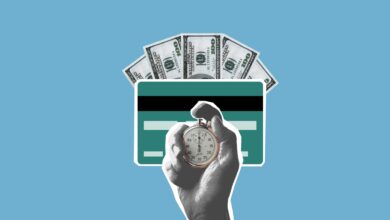14 Money Habits That Keep You Poor

Let me be straight with you, most people aren’t broke because they don’t earn enough. They’re broke because of what they do with what they earn.
I’ve spent years studying personal finance, earned my master’s in financial management, and honestly? The biggest lesson wasn’t from textbooks. It was watching real people sabotage their own wealth building journey with habits they didn’t even realize were toxic.
Here’s the thing: you could double your salary tomorrow, and if these 14 habits stick around, you’d still be checking your bank balance nervously before buying groceries. Scary, right?
This isn’t another lecture about avocado toast or coffee. We’re digging into the real behavioral patterns that create a financial quicksand effect, where the harder you work, the less progress you see.
Ready? Let’s expose these wealth killers.
What Is Money Habit?
Think of money habits as your financial autopilot. They’re the unconscious decisions you make every single day about earning, spending, saving, and investing.
Here’s what makes them dangerous: you don’t even notice them anymore. They’re like breathing, automatic, constant, and shaping your entire financial reality without asking permission.
Your morning routine might include checking Instagram, but your money habits include things like:
- Hitting “buy now” without checking your budget
- Ignoring your credit card statement
- Putting off that 401(k) contribution “just one more month”
The difference between someone building wealth and someone drowning in debt? Usually just 3-5 core money habits. That’s it.
When I started tracking my own spending patterns, I discovered I was bleeding $400 monthly on subscriptions I forgot existed. Four hundred bucks! That’s $4,800 yearly that could’ve been building compound interest in my investment account.
What Are The Things That Make You Poor?
Look, poverty isn’t always about low income. I’ve met people earning six figures who live paycheck-to-paycheck, and folks making $40K who’ve built impressive nest eggs.
The real culprits? Lifestyle inflation, financial illiteracy, and here’s the kicker, believing money myths that keep you trapped.
Things that genuinely keep people poor:
- Spending to impress others (keeping up with the Joneses is expensive, FYI)
- Avoiding financial education like it’s the plague
- Emergency fund? What emergency fund?
- Treating debt as a lifestyle instead of a temporary tool
- Never negotiate your salary or bills
But here’s something nobody talks about: Poverty is also maintained by mindset barriers. If you grew up hearing “money doesn’t grow on trees” or “rich people are greedy,” guess what? Those beliefs are quietly running your financial operating system.
The marketplace doesn’t care about your backstory. It rewards knowledge, strategy, and disciplined execution. Period.
Can Your Money Habits Make You Rich?
Short answer? Absolutely.
Long answer? Your habits are literally the only thing standing between you and wealth. Not luck, not connections, not some secret investment strategy.
Warren Buffett still lives in the house he bought in 1958 for $31,500. Mark Cuban slept on floors when building his first business. These guys didn’t stumble into billions; they systematically practised wealth-building habits while everyone else practiced wealth-destroying ones.
Think about compound interest for a second. If you develop the habit of investing $500 monthly starting at age 25, by age 65, you’re looking at roughly $1.4 million (assuming a 10% average annual return). Same person, same income, different habits = millionaire status.
But flip that script, develop the habit of carrying $5,000 in credit card debt at 18% APR, and you’re paying $900 yearly just in interest. That’s money evaporating into thin air because of one bad habit.
Your daily choices compound just like interest does. Small, consistent actions either build wealth or drain it. There’s no neutral ground here.
14 Money Habits That Keep You Poor
Alright, let’s get into the meat of this. These are the habits I see destroying financial futures every single day, and honestly, I’ve been guilty of some myself. 🙂
1. Not Having An Emergency Fund
Remember 2020? When the world just… stopped? Companies laid off millions, entire industries collapsed overnight, and suddenly, that “it won’t happen to me” mentality got a brutal reality check.
Here’s the uncomfortable truth: without an emergency fund, you’re one unexpected expense away from financial devastation. One car breakdown, one medical bill, one layoff, and boom, you’re drowning in high-interest debt just to survive.
The standard advice is 3-6 months of expenses. But let me give you the real framework I use with clients:
- Basic safety net: $1,000 (covers minor emergencies)
- Intermediate buffer: 3 months’ expenses (protects against job loss)
- Gold standard: 6-12 months expenses (true financial security)
Let’s do math. If your monthly expenses are $3,500, you need between $10,500 and $42,000 sitting in a high-yield savings account. Yeah, it sounds like a lot. But you know what sounds worse? Putting groceries on a credit card at 24% APR because your transmission died.
Pro tip: Open a separate savings account specifically for emergencies. Name it “DO NOT TOUCH – EMERGENCIES ONLY.” Link it to your checking account, but remove the debit card. Make it slightly annoying to access. That friction helps.
Check out Ally Bank or Marcus by Goldman Sachs for high-yield savings accounts that actually pay decent interest.
2. Spending More Than You Earn
This one seems obvious, right? Yet somehow, 78% of Americans live paycheck to paycheck. People earning $200K are just as broke as people earning $50K because they scale their spending to match (or exceed) their income.
I call this the “income illusion.” You think, “Once I make $X, I’ll start saving.” Then you hit $X, upgrade your lifestyle, and guess what? You’re still broke. Just with nicer stuff.
Here’s how it actually works:
- Earn $4,000/month → Spend $4,200/month = -$200 (debt accumulation)
- Earn $4,000/month → Spend $3,500/month = +$500 (wealth accumulation)
That $700 difference? Over ten years, it’s not just $84,000. With investment returns, it’s potentially $150,000+ in the wealth gap between two people with identical incomes.
The fix? Track every dollar for one month. I mean every dollar. Apps like YNAB (You Need A Budget) or Mint make this painless. When you actually see where money goes, the unconscious spending patterns become obvious.
3. Not Building A Budget
“Budget” sounds restrictive and boring, I get it. But here’s a better way to think about it: a budget is a spending plan that prioritises what you actually care about.
Without a budget, you’re playing financial whack-a-mole. Money shows up, money disappears, and you’re always surprised by both. With a budget, you’re the director, not an extra in your own financial movie.
Let me share my favourite budgeting framework, the 50/30/20 rule:
- 50% for needs (rent, utilities, groceries, insurance)
- 30% for wants (dining out, hobbies, entertainment)
- 20% for savings and debt (emergency fund, retirement, paying off loans)
So if you earn $5,000 monthly after taxes:
- $2,500 → Needs
- $1,500 → Wants
- $1,000 → Savings/Debt
Is this perfect for everyone? Nope. If you’re drowning in debt, flip it to 50/20/30 until you’re above water. If you’re aggressively building wealth, try 50/20/30 (20% wants, 30% savings).
The specific percentages matter less than having a system and actually following it. Try the EveryDollar app if you want a free, beginner-friendly option.
4. Taking Interest-Free Loans

“But it’s 0% interest!” Yeah, and it’s also 100% debt.
Look, I’m not against strategic use of interest-free financing. If you need a new laptop for work, and Best Buy offers 12 months at 0%, and you can pay it off in 6 months? Fine. That’s using debt as a tool.
But here’s what actually happens most of the time:
- You take the “free” loan because you can
- You treat it like found money
- You forgot the payment schedule
- Month 13 hits with 27% retroactive interest
- You’re screwed
I watched a friend buy a $3,000 couch on “18 months interest-free” financing. Forgot one payment in month 17. Got hit with $1,400 in backdated interest charges. That “free” loan cost him nearly 50% extra.
The psychological problem: Interest-free loans make you spend money you don’t actually have. They normalise debt as a payment method instead of a last-resort tool.
Better approach? If you can’t buy it with cash today, either save up for it or reconsider whether you really need it. I promise, the dopamine hit of buying stuff fades way faster than the stress of debt payments.
5. Having Only One Source Of Income
Ever heard the phrase “never put all your eggs in one basket”? Yeah, it applies to income too.
Your job, that stable, reliable paycheck, can vanish overnight. Company restructures, industry disruption, mass layoff, recession, or just bad luck with a micromanaging boss. Relying on a single income stream is a massive financial risk nobody talks about.
The wealthy understand this instinctively. They have:
- Primary business or job income
- Investment income (dividends, interest, capital gains)
- Rental property income
- Side business revenue
- Royalties or licensing fees
You don’t need all of these, but you need more than one.
Let me give you practical examples:
- Side hustle: Freelance writing, consulting, tutoring ($500-2,000/month)
- Passive income: Dividend stocks, REITs, peer-to-peer lending ($100-500/month)
- Digital products: Online courses, ebooks, templates (varies wildly)
- Rental income: Spare room on Airbnb, rent your parking spot ($300-1,500/month)
When I lost my corporate job during a company merger, my freelance income and investment dividends kept my family fed. Without those backup streams? We’d have been in serious trouble.
Websites like Fiverr, Upwork, and TaskRabbit make it stupid easy to start earning extra income this month. Not next year. This month.
6. Failing To Save Extra Money
Got a bonus? Tax refund? Sold some stuff on Facebook Marketplace? Birthday cash from grandma?
If your immediate thought is “time to treat myself,” we need to talk.
Every dollar that enters your life is an opportunity. You can either convert it into temporary pleasure or permanent wealth. Most people choose temporary pleasure, then wonder why they’re not making progress.
Here’s my personal rule: 50/50 split on unexpected money. Half goes directly to savings or investments. The other half? Sure, spend it guilt-free. You just built wealth AND rewarded yourself.
Let’s quantify this. Say you receive:
- $1,200 tax refund
- $800 birthday/holiday cash
- $300 from selling old stuff
- $2,000 work bonus
Total: $4,300 in “extra” money.
The broke approach: Spend all $4,300 on fun stuff. Net worth change: $0
The wealth-building approach: Save $2,150, spend $2,150. Net worth change: +$2,150
Do this consistently, and you’re adding $10,000-20,000 yearly to your wealth without touching your regular income. That’s the down payment on a house, a fully-funded emergency fund, or a serious investment portfolio starter.
7. Relying On Loans To Cover Expenses
If you’re using loans to cover regular, predictable expenses, that’s not financial management; that’s a slowly sinking ship.
Loans should fund assets or emergencies, not groceries, gas, or your electric bill. When debt becomes your default payment method, you’re caught in a cycle where you’re constantly borrowing from future-you to pay for present-you’s lifestyle.
I’ve seen this pattern destroy people:
- Income doesn’t cover expenses
- Take a payday loan or cash advance
- Repay the loan plus massive fees
- Now, even less money for expenses
- Take another loan to cover the gap
- Repeat until bankruptcy
The interest and fees on these predatory loans (payday loans, title loans, cash advances) can hit 300-500% APR. You’re literally paying $4-5 for every dollar borrowed.
The real solution isn’t more loans, it’s increasing income or decreasing expenses. I know that sounds harsh, but it’s reality.
Actionable steps:
- Audit spending: Cut non-essentials immediately
- Increase income: Side hustle, overtime, new job
- Negotiate bills: Call every service provider and negotiate lower rates
- Sell stuff: Turn unused items into cash
- Get help: Consider credit counselling through NFCC
Debt should be a tool you control, not a trap you’re stuck in.
8. Hoarding Money
Okay, this might sound contradictory after everything I just said. “Wait, you want me to save, but not hoard?”
Here’s the distinction: Saving is strategic. Hoarding is fearful.
Keeping $50,000 in a checking account earning 0.01% interest isn’t financial wisdom; it’s opportunity cost. While you’re hoarding that cash, inflation is eating 3-4% of its purchasing power annually. You’re literally losing money by trying to protect it.
Smart wealth-builders understand that money is a tool that should work for you, not sit idle in fear.
The framework I teach:
- Emergency fund: 6-12 months’ expenses in high-yield savings (accessible, safe)
- Short-term savings: 1-3 year goals in bonds or CDs (modest growth, low risk)
- Long-term wealth: 5+ year goals in diversified investments (stocks, index funds, real estate)
Let’s compare outcomes over 10 years:
Hoarder approach: $30,000 in checking @ 0.01% = $30,030 (losing 28% purchasing power to inflation)
Strategic approach: $30,000 invested @ 8% average return = $64,768 (gaining 116% in purchasing power)
That’s a $34,738 difference from the same starting amount. The only variable? One person let their money work; the other locked it in a financial prison.
If investing feels intimidating, start with Betterment or Wealthfront,robo-advisors that handle everything for you with low fees and minimum drama.
9. Resorting To Retail Therapy
Bad day at work? Buy something. Fight with your partner? Buy something. Feeling anxious about money? Ironically… buy something.
Retail therapy is emotional spending disguised as self-care, and it’s one of the most insidious wealth destroyers because it feels good in the moment.
The problem? You’re trying to solve emotional problems with financial solutions. It doesn’t work. That shopping high lasts maybe 2 hours. Then you’re back to baseline, except now you’re poorer.
I used to do this with tech gadgets. Bad day? New headphones. Stressed? Latest smartphone case. Felt broke? Buy something cheap to feel like I have “something new.” The irony was painful; my solution to money stress was spending money.
The psychology: Buying stuff triggers dopamine release. Your brain gets a reward signal. Over time, you become conditioned to seek that hit through shopping. Classic addiction pattern, just socially acceptable.
How to break it:
- 24-hour rule: Wait a full day before any non-essential purchase
- Alternative dopamine: Exercise, create something, connect with people
- Root cause work: Journal about what you’re really feeling
- Delete shopping apps: Remove temptation from your pocket
- Replace the habit: When the urge hits, put that amount in savings instead
Track your emotional spending for one month. Write down every “treat yourself” purchase and the emotion that triggered it. The patterns will shock you.
10. Spending Your Savings
This is financial self-sabotage at its finest. You work hard to build savings, then raid them for stuff that isn’t actually an emergency.
“It’s just this once” becomes a pattern. “I’ll pay it back” rarely happens. Each withdrawal makes the next one easier until your savings account is permanently at zero.
Let me tell you what happens when you spend your savings:
- Compound growth stops: That $5,000 withdrawal isn’t just $5,000 lost, it’s the 10-20 years of compound returns you’ll never see
- Emergency vulnerability: The exact moment you drain savings is when the real emergency hits (Murphy’s Law)
- Psychological damage: Each withdrawal reinforces the belief that you’re “bad with money”
Real emergencies that justify touching savings:
- Medical emergency not covered by insurance
- Sudden job loss (after exhausting unemployment benefits)
- Critical home/car repair needed for work/safety
- Legal emergency
Not emergencies:
- Sales and discounts (“but it’s 50% off!”)
- Vacations (“I deserve a break”)
- New phone/laptop when the current one works fine
- Eating out because you don’t feel like cooking
Set up your savings so it’s not easy to access. Different bank, no debit card, transfer takes 2-3 days. That friction saves your future self.
11. Failing To Invest
If you’re not investing, you’re not building wealth. You’re just temporarily holding money that inflation slowly destroys.
Let me hit you with some math that’ll either motivate or terrify you:
Scenario A (No investing): Save $500/month for 30 years = $180,000
Scenario B (Investing): Invest $500/month for 30 years @ 10% return = $1,130,244
Same monthly amount. $950,244 difference. That’s the cost of not investing.
“But the stock market is risky!” Sure. You know what’s riskier? Relying 100% on a job that could disappear tomorrow and hoping Social Security will be enough.
Investing isn’t gambling; it’s participating in economic growth. When you invest in index funds, you’re basically saying, “I believe the global economy will be bigger in 30 years than it is today.” Historically, that’s been a solid bet.
Beginner-friendly investing path:
- Max out 401(k) match (free money from employer)
- Open Roth IRA (tax-free growth)
- Invest in low-cost index funds (diversification without complexity)
- Automate everything (remove decision fatigue)
Start with Vanguard, Fidelity, or Charles Schwab. Invest in total market index funds. Set it and forget it.
The best time to start investing was 20 years ago. The second-best time is today.
12. Failing To Learn From Your Mistakes
Mistakes aren’t failures; they’re expensive lessons. But only if you actually learn from them.
Most people make the same financial mistakes repeatedly. Overspend during holidays every year. Forget to budget for annual expenses. Buy things impulsively, then regret it. Take on debt they can’t afford. Over and over.
Insanity is doing the same thing and expecting different results, and financial insanity is rampant.
I maxed out credit cards three times before finally getting serious about understanding why. Turns out, I was using spending as a stress response and hadn’t developed healthier coping mechanisms. Once I identified the pattern, I could address the root cause.
Create a “Financial Lessons Learned” document. Every time you make a money mistake, write:
- What happened
- What does it cost you
- Why it happened
- How will you prevent it
Review this quarterly. Watch for patterns. Your past financial behaviour is the best predictor of your future financial behaviour, unless you consciously change it.
The wealthy reflect on money decisions. They broke, repeat them.
13. Using Credit Cards For Points
“But I get 2% cash back!” Cool. You know what’s better than 2% cash back? Not spending the money in the first place.
Credit card rewards programs are brilliant marketing. They convince you that spending money is somehow earning money. It’s not. You’re still spending more than you’re getting back.
The data is clear: people spend 12-18% more when using credit cards versus cash. So yeah, you got 2% back, but you spent 15% more than you would have otherwise. Net result? You lost money.
I’m not anti-credit-card. I use them strategically for:
- Building credit history
- Fraud protection on large purchases
- Actual planned expenses I’d make anyway
What I don’t do is justify purchases because of “points.” That’s how people end up with $8,000 in credit card debt and a few hundred bucks worth of airline miles.
The credit card companies aren’t stupid. They offer rewards because they know human psychology. They know rewards will make you spend more, carry balances, pay interest, and generate profit that dwarfs the cash back they give you.
If you can’t pay off your card in full every month, the rewards don’t matter. You’re paying 18-25% interest to earn 2% back. That’s not math that works in your favour.
14. Impulse Buying
Quick question: when was the last time you bought something you saw, wanted, and purchased in under 5 minutes? And how often do you still use that thing?
Impulse buying is the silent wealth killer. It’s death by a thousand small purchases that seem harmless individually but devastate your finances collectively.
That $12 takeout coffee run? $4,380/year. That random Amazon purchase? Multiply it by the other 50 you made. Those “only $5” apps, subscriptions, and convenience purchases? They’re why you’re broke despite making decent money.
The psychology is simple: Retailers design entire systems to trigger impulse purchases. Strategic product placement, limited-time offers, “only 2 left in stock” warnings, and one-click checkout. These aren’t accidents; they’re profit-maximisation strategies that exploit your brain’s weaknesses.
How to kill impulse buying:
- 30-day rule: For anything over $50, wait 30 days before buying
- Shopping lists: Only buy what’s on the list, period
- Cash only: Physical money creates psychological friction
- Unsubscribe: Remove yourself from marketing emails
- Delete payment info: Make purchasing slightly annoying
Here’s a wild experiment: track every impulse purchase for one month. Define impulse as “bought within 24 hours of first seeing/wanting it.” Add up the total. Most people are shocked,$300-600 is common.
Now imagine redirecting that money into investments. Over 20 years, that monthly $400 in impulse purchases would have become $304,000 invested.
That’s the real cost of “just this one thing.”
Final Thoughts
Transforming your finances isn’t about secret formulas or overnight success. It’s about facing the habits that hold you back and deliberately choosing better ones, day after day.
You don’t need to fix all 14 habits at once: that’s a fast track to burnout. Pick three that matter most, stick with them for 90 days, and let consistency do the heavy lifting.
Because here’s the truth: small, steady changes compound into massive results. Just as bad habits build poverty, good habits build wealth. Financial freedom isn’t luck; it’s 5 to 7 core behaviour shifts done relentlessly well. You’ve got the insight now. The only question is whether you’ll act on it.
A year from now, you’ll either wish you started or be thankful you did. Your move. And if you’re ready, start small, use YNAB for budgeting, Vanguard for investing, or NFCC for guidance. Tiny steps today, massive results tomorrow.








